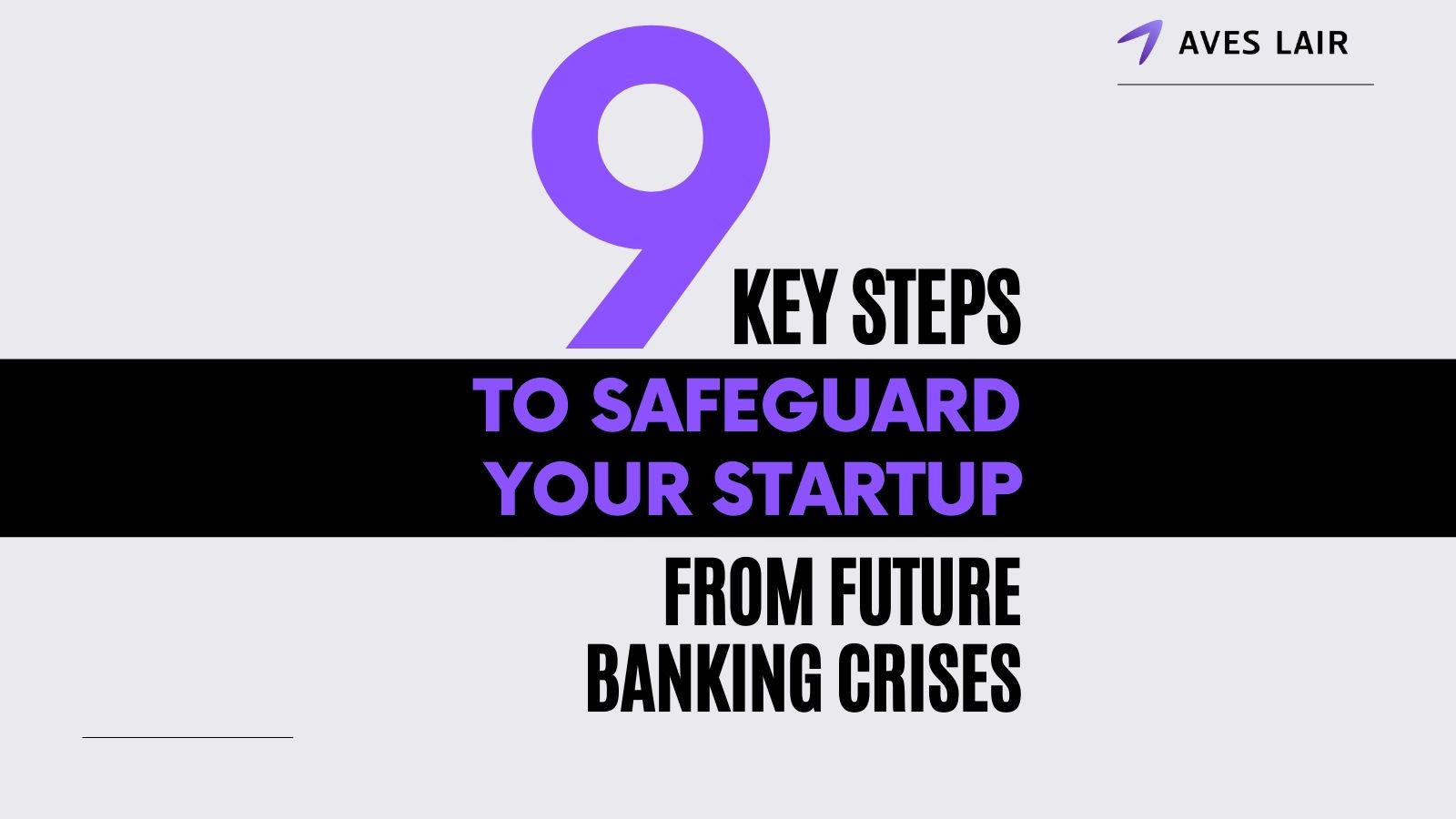In the wake of the recent Silicon Valley Bank (SVB) crisis, it has become increasingly clear that startups need to be prepared for a potential banking crisis. The SVB crisis was a wake-up call for many startups, as it highlighted the need for businesses to have contingency plans in place to protect themselves from similar crises in the future. In this article, we will outline key steps that startups can take to protect themselves from future banking crises.
1. Set up 1-2 additional bank accounts with different institutions, synced with Quickbooks/Xero
One of the most important steps startups can take to protect themselves from banking crises is to set up one or two additional bank accounts with different institutions. This helps reduce reliance on a single bank and ensures smoother operations during crises. It’s also important to sync these accounts with Quickbooks/Xero to make managing finances easier.
2. Keep operational capital in a smaller/regional bank like Mercury or BbrexHQ, while excess cash should be in a “too big to fail” bank
To reduce risk, startups should keep their operational capital in a smaller or regional bank like Mercury or BrexHQ. This will help to protect the business in the event of a banking crisis. However, it’s also important to keep excess cash (>8-12 months of operating capital) in a “too big to fail” bank to further reduce risk.
3. Develop a plan to manage excess cash, including investing in instruments beyond basic checking accounts
Startups should also develop a treasury policy to manage excess cash. This includes investing in instruments beyond basic checking accounts, such as money market funds and laddered CDs, to generate yield and diversify risk.
4. Don’t store multiple years of a runway in one uninsured account, diversify cash holdings
It is crucial for startups not to store multiple years of a runway in one uninsured account. They should diversify their cash holdings to minimize the impact of bank failures. By spreading their excess cash across different accounts, startups can protect themselves from potential losses.
5. Maintain a rolling 4 or 13-week cash flow forecast
Startups should maintain a rolling 4- or 13-week cash flow forecast that tracks bills, invoices, and expected cash balances. This helps with quick decision-making during crises and ensures that the business has enough cash to cover essential expenses.
6. Obtain a 3-6 month line of credit and keep it untapped for emergencies
It’s also important to obtain a 3-6 month line of credit and keep it untapped for emergencies. This provides a financial cushion during turbulent times and ensures that the business has access to funds when it needs them most.
7. Develop plans for survival mode, identifying core staff, mission-critical vendors, and payables that could be deferred
Startups should develop plans for survival mode, identifying core staff, mission-critical vendors, and which payables could be deferred to ensure business continuity. This step helps ensure that your startup can survive even in difficult circumstances.
8. Engage with your board, team, and investors to discuss risk mitigation strategies
Startups should engage with their board, team, and investors to discuss risk mitigation strategies, ensuring everyone is on the same page and prepared for potential crises. It’s important to involve all stakeholders in discussions about risk management to ensure that everyone is prepared for unexpected events.
9. Consider using sweep accounts to automatically move excess cash into higher-interest or safer investment options, further diversifying your cash holdings.
A sweep account is a type of bank account that automatically transfers excess funds into higher-yield investment options, such as money market funds, overnight investment funds, or other types of investment vehicles. This strategy not only helps to diversify your cash holdings but also ensures that excess funds are put to work, earning a return rather than sitting idle in a low-interest checking account.
In conclusion, startups need to take proactive measures to protect their finances from potential banking crises. By following these key steps, startups can ensure smoother operations during crises, reduce risks, and safeguard their financial future. It’s important to remember that financial planning is an ongoing process that requires constant attention and adjustment as circumstances change. By taking the time to develop a robust financial strategy, startups can better position themselves for long-term success.
About Aves Lair
Aves Lair: Global early-stage VC with an ecosystem where visionaries, groundbreaking startups, industry leaders, scientists, and investors are brought together to usher in a new wave of innovation to the Web3 industry.
Whether you are an investor seeking attractive yields or a DeFi project looking to integrate RWAs, our team is here to support you every step of the way. Accelerate your business with us and embrace the transformative power of Tokenized Real World Assets in the DeFi ecosystem. Apply here!

